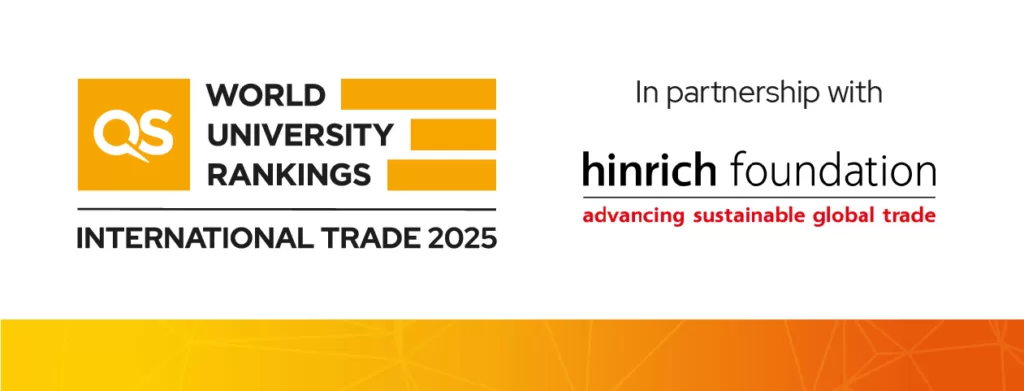
The recently released QS World University Rankings by Subject 2024 ranked over 16,300 academic programmes, from 1,559 institutions. While global data offers a unique snapshot of the higher education sector, there is also significant value in taking a more regional view. Dr Ashwin Fernandes, QS Executive Director for Africa, Middle East & South Asia, has reviewed the data, and reflected on what it means for the Arab region’s universities.
Nations in the Arab region are transforming into knowledge-based economies, and have placed great emphasis on bolstering their higher education systems. This strategic shift is reflected in the latest QS World University Rankings by Subjects 2024 edition, where Arab universities have demonstrated remarkable improvements. Fuelled by significant investments in education and research, countries like Saudi Arabia, the United Arab Emirates, and Qatar are not only enhancing their educational frameworks but are also aligning them with ambitious national visions — Saudi Vision 2030, We the UAE 2031, and Qatar National Vision 2030 respectively. These blueprints aim to diversify economies, reduce oil dependency, and foster innovation.
The QS World University Rankings by Subject were compiled after a comprehensive analysis that encompassed over 16,400 university programs worldwide from more than 1,500 universities across 95 countries. The Arab region’s commitment to advancing academic and research excellence is becoming increasingly evident in the latest results. We will explore how the confluence of these factors is reshaping the educational landscape in the Arab world, preparing it to meet the demands of a rapidly evolving global economy.
Comprehensive overview: Saudi Arabia leads the way
477 subject entries were ranked at 69 universities across 13 Arab countries. The Arab region is home to 56 programmes in the world’s top 100 for their subject. Saudi Arabia’s King Fahd University of Petroleum & Minerals take the region’s two highest ranks, with Petroleum Engineering and Mineral & Mining Engineering placing fourth and ninth in the world respectively.
In 2016, the Saudi Ministry of Education announced and initiated an ambitious plan to transform key public universities, into private, independent, and flexible institutions, with their own governing boards which will manage their own affairs, and involve private sector participation in education through grants, endowments, and donations. It also meant that public universities that were once heavily relying on government funding, had to become self-reliant and focus on fee paying students and target international students for revenue growth. This has been a boon for universities like King Fahd University of Petroleum and Minerals that works closely in partnership with Saudi Aramco, Sabic and other major entities.
The Arab region also boasts 115 entries in the five broad areas of study QS ranks (Arts & Humanities, Engineering & Technology, Life Sciences, Natural Sciences, and Social Sciences). That said, let me offer you a look at some of the results by country.
Saudi Arabia
- Saudi Arabia continues to dominate the region in higher education, boasting top ranked subjects and the region’s greatest number of ranked subject entries in this year’s list.
- 13 Saudi entries are in the world top 50 – 12 of which are engineering and science subjects, and one for art and design.
- King Fahd University of Petroleum & Minerals is Saudi Arabia’s top performing university and makes up 17 of the country’s 132 entries, placing 5th in the world for Petroleum Engineering and 8th in the world for Minerals and Mining Engineering.
- 26 new Saudi programmes were ranked in the 2024 edition.
- Three new institutions feature in this year’s rankings: Qassim University, Prince Sultan University, and Saudi Electronic University.
- The Arab region’s most prolifically ranked subject is Computer Science, with 49 ranked entries. King Abdulaziz University (KAU) in Saudi Arabia is the highest ranked, placing 66th.
United Arab Emirates
- The United Arab Emirates is home to one subject entry in the top 10, with The Emirates Academy of Hospitality Management (EAHM) in ninth for Hospitality & Leisure Management, commanding an excellent Academic Reputation, one of the key factors in the QS ranking methodology.
Egypt
- Egypt’s Cairo University enjoys prominence as the most represented university in the Arab region, with 31 subject entries. The uiversity is home to Egypt’s highest ranked subject, Library & Information Management, which debuts this year in the 38th place.
Oman
- In one of the most exciting developments in the region, Oman’s Sultan Qaboos University shows the greatest improvement rates. Ranking in 16 subjects, eight of which climb the table and no drops in the remaining eight, giving it an overall improvement rate of 50%.
Jordan
- Jordan is the Arab region’s most improved country, among those with five or more ranked universities, with an overall programme improvement of 27%.
Interesting findings
- Jordan, Qatar and Kuwait have subjects in the top 50, all of which are in Library & Information Management. Kuwait University places 39th, Qatar University places 43rd and University of Jordan comes 49th.
Winds of change in the Arab region
During the recently concluded QS Higher Ed Summit: Middle East in Ras-Al-Khaimah, I spoke of the mindset driving the change in the region. In recent years, Arab governments and educational elites have taken steps to highlight the importance of indigenous higher education and have started an array of projects that are yielding tangible change.
I noted three focus areas that Arab region universities have, that speak to their innovation and change mindset:
- Achieving the UN’s Sustainable Development Goals
- Building knowledge economies
- Enabling innovation
The Saudi Ministry’s ambitious plan to transform public universities led to some innovative thinking in attracting international students for revenue growth. This, coupled with international universities choosing to expand into the region, have tapped into the region’s international outlook. For any forward movement to happen in a market, partnerships with industry are crucial for economic development, thereby propagating better employment and research, two end goals for universities and their graduates. Innovation continues to be a key driver in the region in adapting to change and a forward-thinking approach to higher education.
While world university rankings continue to showcase the strengths of western universities, it’s clear that regional players are now stepping up. The emergence of new universities and overall improvement rates are indicative of that. The winds of change are noticeable in the Arab region, as also in the Asian subcontinent, and QS congratulates all the universities that continue to make great strides towards the betterment of their student population.



